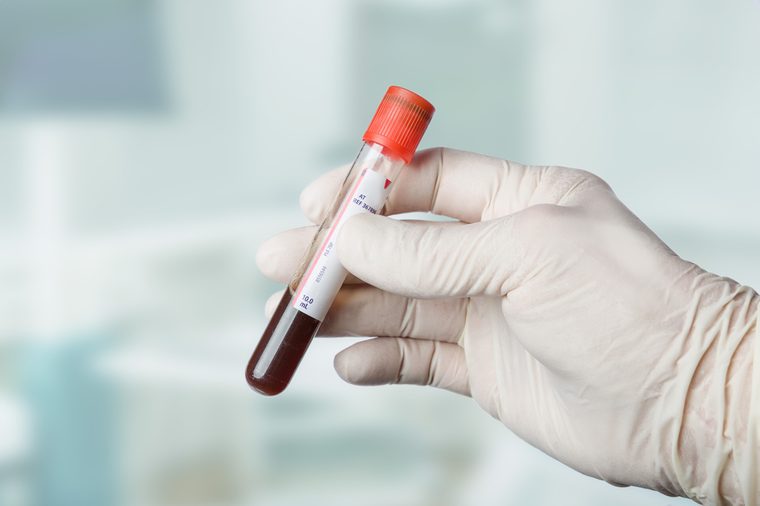
What is the blood type diet?
Whether you’re trying to lose 20 pounds or just looking for ways to be healthier, there’s no shortage of diets to choose from. But only one looks to your blood type to determine what you should or shouldn’t eat.
The blood type diet originated from the 1996 book Eat Right for Your Type by naturopathic physician Peter J. D’Adamo. The idea behind it is that your body’s response to food is directly linked to your blood type, based on what your ancestors with the same blood type ate. Each blood type has its own guidelines about the foods that anyone with that blood type should eat and the foods they should avoid. The diet claims to help people lose weight, improve digestive health, and boost overall well-being.

What each blood type diet looks like
The Type A diet is a predominantly vegetarian diet because D’Adamo suggests that people with this blood type have difficulty digesting animal protein and fat. Focusing on fresh, organic foods, the Blood Type A diet advises to eliminate dairy products and wheat and to eat more salmon, vegetables, olive oil, and nuts. (Maybe that’s why these celebs decided to go vegan.)
The Type B diet includes a wider variety of foods, claiming ancestors with this blood type were omnivores. Its recommendations are fairly similar to the paleo diet. Notable exclusions include chicken, corn, wheat bread, and coffee.
The Type AB diet is a well-rounded one, because people with this blood type can allegedly digest a variety of foods. While it eliminates red meat, beans, and corn, people on this diet can eat a variety of fish, turkey, oatmeal, fresh produce, and coffee,
The Type O diet advocates eating lean meats. People with this blood type are said to be descendants of hunters and may better metabolize animal products. It’s also a low-carb diet, eliminating many grains and fruits, but allows full fat dairy in moderation.

Does the blood type diet actually work?
In short, it’s complicated.
Some people do see results, like Aylin Poulton, who unsuccessfully tried treatments for her severe psoriasis for over ten years. When she decided to try the blood type diet (she’s type A) as a new way to maintain her weight, she also noticed that many foods that the type A diet eliminated were also said to aggravate psoriasis. “I went into this not thinking, ‘I’m going to do this to cure my psoriasis,’” Poulton says. “And for the first time since 2003 or 2004, I want to say I have a couple of tiny [patches of psoriasis] on me, but my body is completely clear.”
Naturopathic physician Tara Nayak worked as D’Adamo’s clinical resident and now has a private practice in Philadelphia. She recommends the blood type diet to her patients, not as a “cure-all” but as a foundation for them to develop healthier eating habits, noting that the results her patients see from being on the diet aren’t strictly weight loss.
“I actually have found that the place that the diet shines the most is in people with autoimmune disorders or inflammatory type states,” she says. “To be honest, if you’re at a healthy weight and do the blood type diet, you shouldn’t lose that much weight. But if you’re looking to lose weight, the blood type diet does help.”

Here’s the catch
There are no peer-reviewed scientific studies that have found evidence to support or recommend the blood type diet. For the people who did see results, it could have been circumstantial or based on a factor other than blood type. A 2013 study from the American Journal of Clinical Nutrition found no evidence to “validate the purported health benefits of the blood type diet.” The following year, the results of a different study published in PLoS One showed that the blood type diet was associated with lowering certain risk factors like high blood pressure or cholesterol, but those associations were independent of the individuals’ blood types. (D’Adamo says this study is erroneous because it didn’t specifically put individuals on the blood type diet he created. He and lead study author Ahmed El-Sohemy even had a lengthy back-and-forth discussion on this criticism in the comments of D’Adamo’s blog.)

What medical professionals say
Robert H. Shmerling, MD, writes on the Harvard Health Blog that the ancestral theories behind each group have been challenged and that there’s no proven connection between blood type and digestion. Dr. Charlie Seltzer, MD, calls the blood type diet a “parlor trick,” but doesn’t consider the diets overtly unhealthy.
“People who follow these diets are probably living really unhealthy lifestyles and have no idea what it takes to lose weight or be healthy in the real world,” Dr. Seltzer tells Reader’s Digest. “So when you take someone who has no idea [how to be healthy] and tell them to follow any one of four plans which are already better than the one they’re following now, they’re going to see results.”
However, Laurie Thomas, author of Where Do Gorillas Get Their Protein? What We Really Know About Diet and Health, warns that the type O diet may actually pose a danger to people who follow it, as fatty, meat-rich diets can lead to an increased risk of diabetes, stroke, and even fatal heart attacks.
Related: Why Goop Queen Gwyneth Paltrow Doesn’t Actually Cleanse

The bottom line
If you are considering going on any diet, always talk to your physician first. He or she knows your medical history and can help you make an informed decision. You may even find that the right diet for you shares similarities with aspects of the blood type diet because its parameters overlap with those of other popular diets. However, evidence that the blood type diet actually works remains unproven. That alone implies a risk in testing it yourself.
